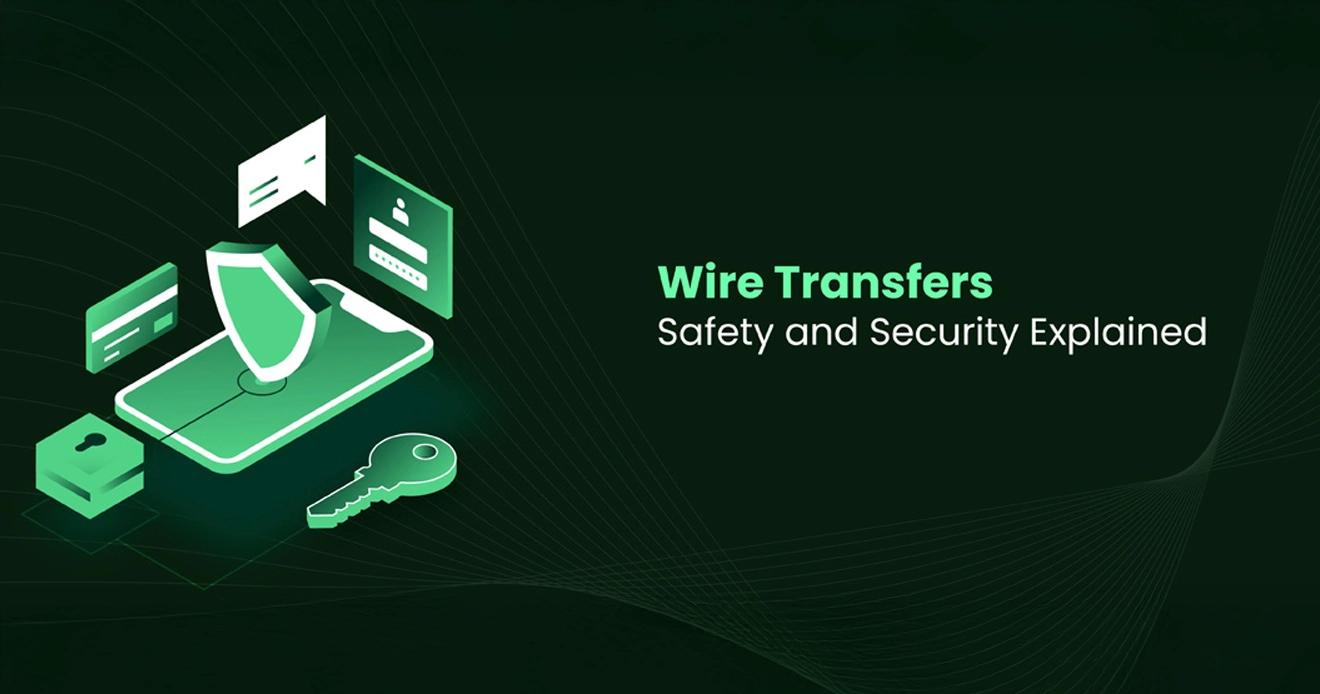A wire transfer refers to the electronic transfer of funds between banks or financial institutions. This can be done either domestically or internationally, allowing individuals and businesses to send money quickly across vast distances. The meaning of wire transfer comes from the historical use of telegraph wires to send money orders between offices.
Wire transfers are often preferred for bigger transactions due to their speed and the relative certainty of the funds’ availability upon receipt. Unlike cheques, which may take several days to clear, wire transfers are usually completed within a few hours or by the next business day, making them a reliable option for urgent payments.
Types of wire transfers
Domestic and International are the two types of wire transfers. A domestic wire transfer takes place between two institutions in the same country. At the same time, an international wire transfer is initiated in one country and settled in another. These payments require a SWIFT code or routing.
How does a wire transfer work?
To understand the safety of wire transfers, it’s essential to know how wire transfer works. The process involves several steps, as mentioned below:
- Initiation: The sender initiates the wire transfer through their bank, providing the recipient’s banking details, including the account number and the receiving bank’s routing number or SWIFT code for international transfers. The sender must also specify the amount to be transferred.
- Processing: Once the transfer is initiated, the sender’s bank will send a message to the recipient’s bank via a secure system. This message includes payment instructions and necessary details.
- Verification: The recipient’s bank receives the message and verifies the information provided. This step ensures that the account details match and that there are no discrepancies.
- Settlement: After verification, the funds are debited from the sender’s account and then credited to the recipient’s account. The banks involved may charge a fee for facilitating the transfer, which varies depending on whether the transaction is domestic or international.
- Confirmation: Finally, both the sender and the recipient will receive a confirmation that the transfer has been completed. This confirmation includes details such as the amount transferred, the date, and any reference numbers.
Are wire transfers safe?
Wire transfers are a very safe method of sending and receiving money overseas. Their security lies in the encryption technology, which encrypts the data on the Internet during transmission. This encryption ensures that only authorised parties can access your personal information when your money is being transferred.
Wire transfers are conducted over secure and encrypted networks. Systems like SWIFT and Fedwire are designed with robust security protocols to prevent unauthorised access and ensure that transaction details are transmitted safely.
Both the sending and receiving banks perform multiple verification steps to ensure the accuracy of the information provided. This includes verifying account numbers, routing numbers, and the identity of the parties involved. These measures reduce the risk of errors and fraudulent activities.
Wire transfers are subject to strict regulatory oversight. Financial institutions must comply with regulations set by entities such as the Financial Crimes Enforcement Network (FinCEN) in the United States and The Reserve Bank of India (RBI) in India, which helps to detect and prevent money laundering and other financial crimes. Compliance with these regulations adds an extra layer of security to wire transfers.
Scams that you should be aware of
Wire transfers are a popular method for quickly and securely transferring funds. However, this efficiency also attracts scammers who exploit vulnerabilities to deceive unsuspecting individuals and businesses. Being aware of common wire transfer scams can help you protect your money and avoid becoming a victim. Here are some of the most prevalent wire transfer scams to watch out for:
1. Phishing scam
Phishing scams involve fraudsters sending emails or messages that appear to be from legitimate sources, such as banks, companies, or even acquaintances. These messages often contain urgent requests or alarming information designed to prompt immediate action. The goal is to trick recipients into providing sensitive information or making wire transfers to fraudulent accounts.
How to avoid phishing scams:
- Verify the source: Always verify the authenticity of emails or messages by contacting the sender directly using known contact information, not the details provided in the message
- Look for red flags: Be cautious of urgent requests, grammatical errors, and unfamiliar email addresses
- Use security software: Employ robust anti-phishing and antivirus software to detect and block malicious attempts
2. Fake tech support
A lot of scammers pretend to be tech support associates and ask for access to your device to “fix” a random problem. Once they have access, they can easily transfer money from your account to theirs.
3. Emergency scam
This scam involves a person pretending to be your friend or a family member. They claim to be in an emergency and request money. Scammers generally request money through wire transfer, as it is a quick and easy method.
How to wire transfer safely?
Wire transfer safety involves recognising the risks to safeguard yourself during transactions.
- Protect your information: When initiating a wire transfer, ensure you provide accurate details about the recipient’s bank account number, routing number, and other pertinent information. Double-check all your information before submitting a request to avoid delays or potential losses due to incorrect data.
- Avoid wiring to unknown individuals: Exercise caution when wiring money to people you do not know personally or with whom you have not previously conducted business. Be sceptical of requests to wire money for goods or services you have not yet received. There is no guarantee the recipient will fulfill their part of the deal once they receive your payment.
- Be cautious with cash wire transfers: Only use cash wire transfers when absolutely necessary, as these transactions are irreversible if something goes wrong.
- Stay informed about scams: Numerous scams are associated with wire transfers. It’s crucial to research and verify all details before sending any funds through this method.
- Regularly review your bank statements: Consistently checking your bank statements is a good habit to ensure all transactions are accurate.
Transfer On-The-Go
Wire transfer scams are varied and can be sophisticated, targeting both individuals and businesses. By staying informed about these common scams and taking proactive steps to verify the legitimacy of requests, you can significantly reduce your risk of falling victim to these fraudulent schemes. Always prioritise caution and thoroughness in financial transactions to protect your money and personal information.

